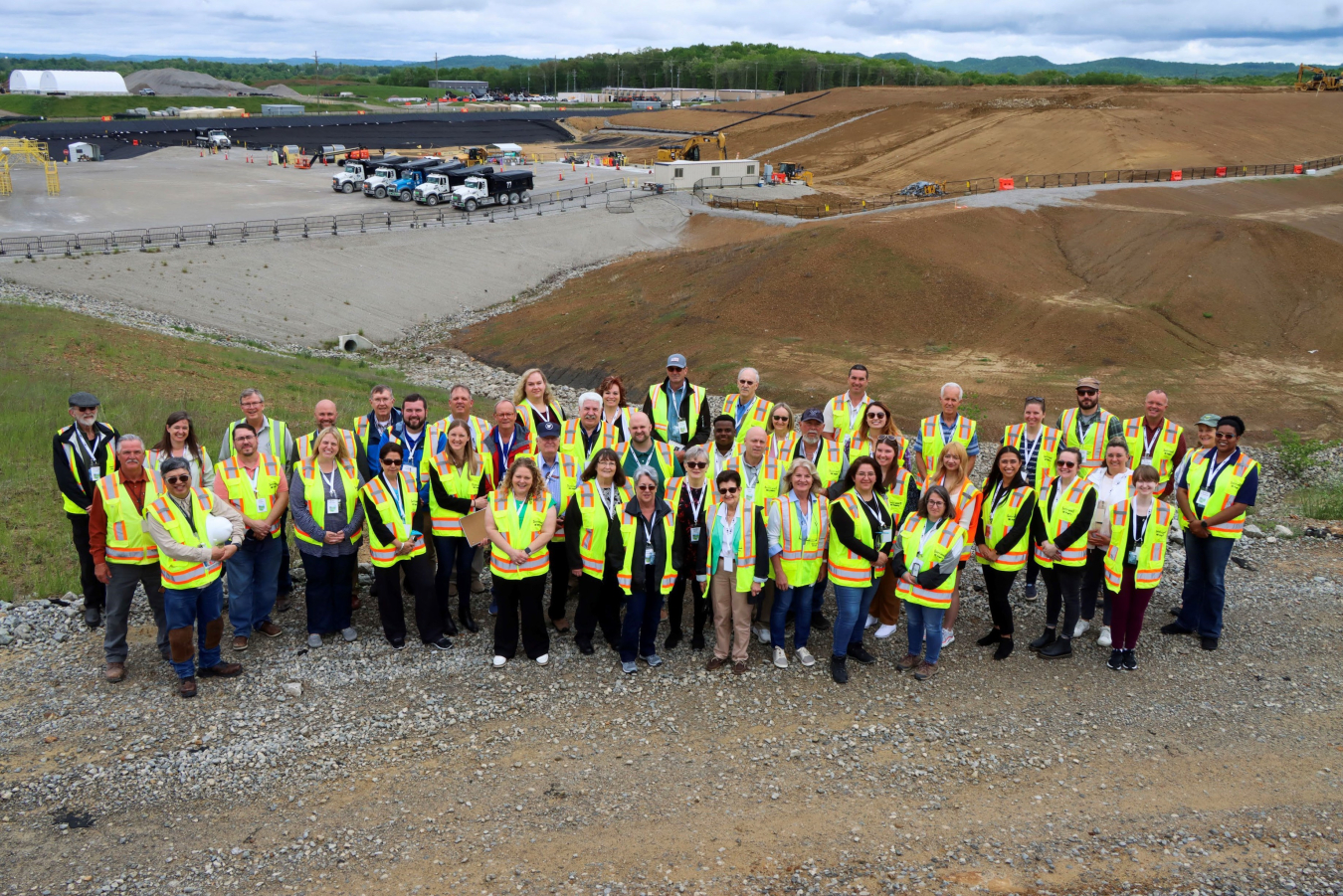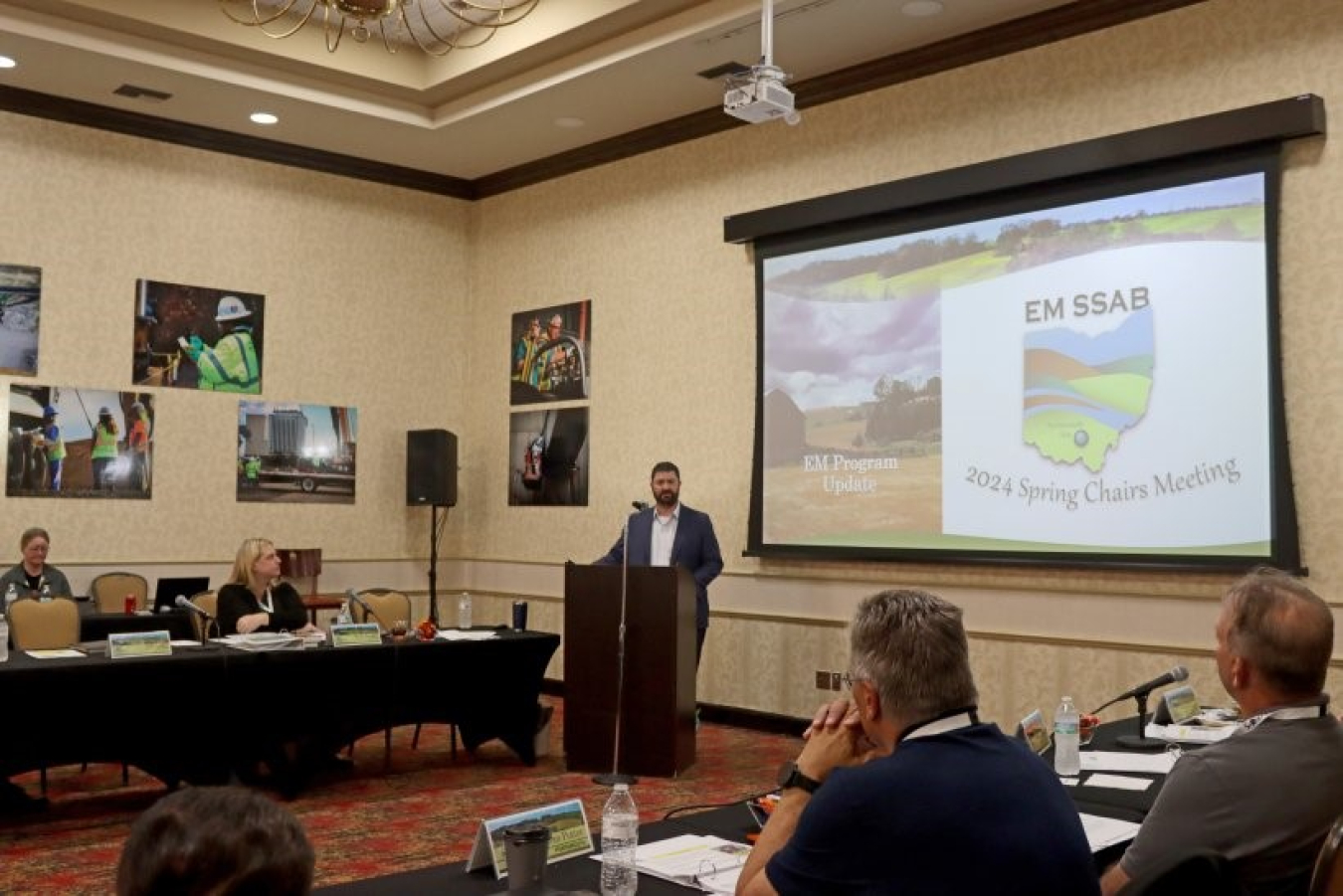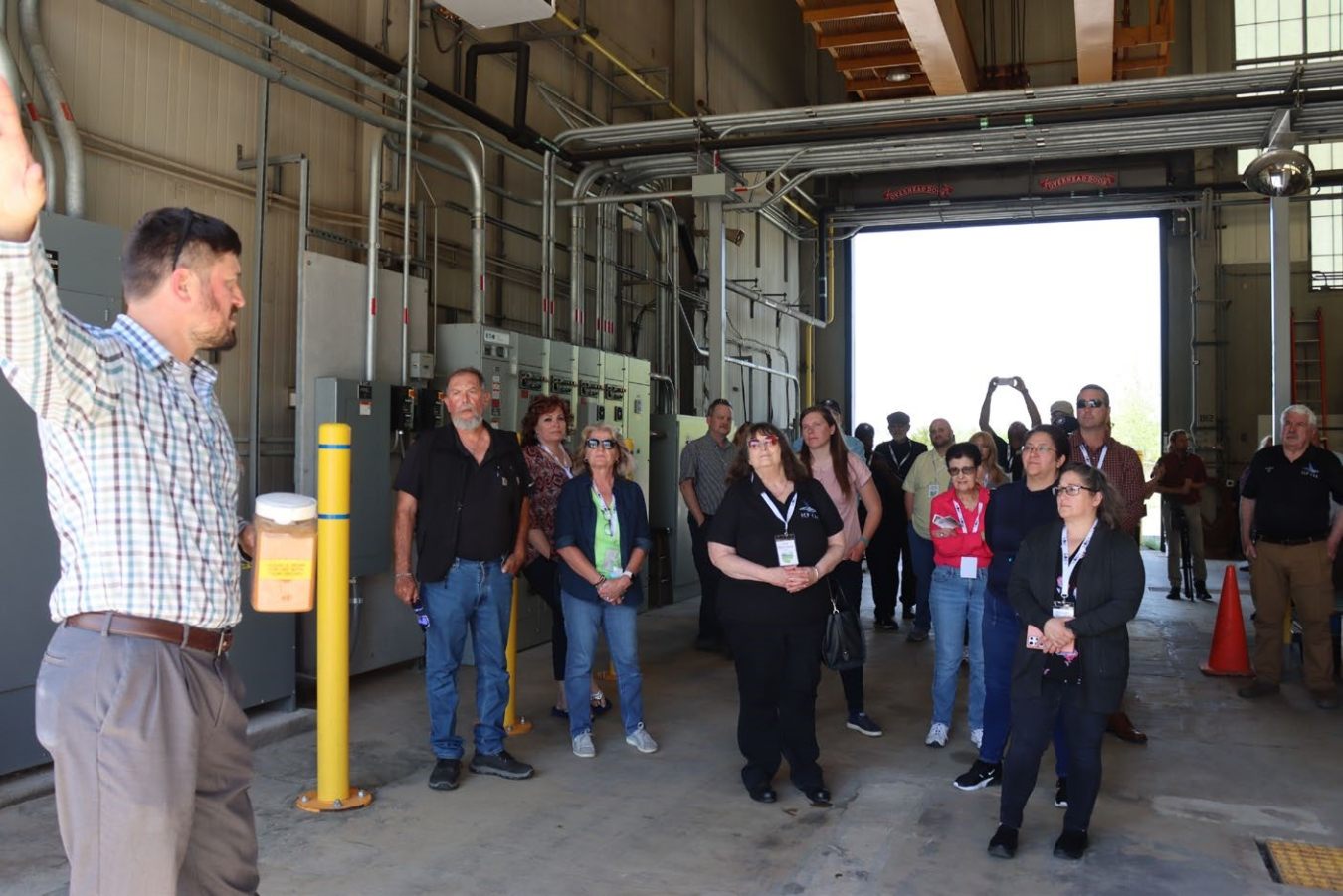Idaho Citizens Advisory Board leaders participated in the biannual two-day US Department of Energy’s Environmental Management Site-Specific Advisory Board National Chairs meeting April 30-May 2,in Chillicothe, Ohio.
Idaho Cleanup Project Citizens Advisory Board
June 4, 2024
EM SSAB members, support staff, and DOE employees at the Portsmouth Site in Ohio
CHILLICOTHE, Ohio — Idaho Citizens Advisory Board leaders participated in the biannual two-day US Department of Energy’s Environmental Management Site-Specific Advisory Board National Chairs meeting April 30-May 2,in Chillicothe, Ohio.
Teri Ehresman, Idaho CAB chair; Bob Skinner, Idaho CAB vice chair; and Mariah Porter, Idaho project staff; attended the meeting with CAB members from other cleanup sites and heard about cleanup progress from EM leadership.
EM Principal Deputy Assistant Secretary Jeff Avery expressed gratitude for the representatives of the eight local EM SSABs.
“The EM SSAB is a tremendously important and influential group,” Avery remarked. “We are much healthier when we have diverse views and perspectives to inform the Environmental Management program. The EM SSABs provide us with a window into their respective communities to help us better understand perspectives and concerns.”

Jeff Avery addresses attendees at the EM SSAB Spring Chairs Meeting in Chillicothe, OH.
Avery shared themes important to the EM program, including safety and a focus on the future. He also covered progress updates for cleanup projects.
Justin Mable, director of the DOE HQ National TRU Program, told the group the EM Office of Packaging and Transportation (OPT) protects people and the environment by promoting safe, compliant and efficient packaging and transportation of materials. He said OPT achieves this mission by conducting oversight on packaging and transportation with assessments through the Packaging Certification Program (PCP); assisting field sites, and developing and managing policies, tools and technology in accordance with DOE requirements and government regulations.
Juan Uribe, senior program manager of the Office of Consent-Based Siting in the DOE Office of Nuclear Energy, told the group of efforts to identify a site for federal consolidated interim storage of spent nuclear fuel using a consent-based siting process. The process, released in April 2023, will build on recommendations from the 2012 Blue Ribbon Commission final report, public input from early consent-based siting efforts, public input from early consent-based siting efforts, public comments from the 2017 draft consent-based siting process and public input from DOE’s 2021 public Request for Information.
Also at their spring meeting, the group of advisory board members discussed topics including DOE’s Cleanup to Clean Energy initiative and per- and polyfluorinated substances (PFAS). The board members received a briefing on the status of the recommendations they’ve made over the past five years.
The trio from Idaho participated in a pre-meeting tour of the Portsmouth Site Overview led by Jeremy Davis, Portsmouth site lead. The group viewed the Portsmouth site cleanup progress.

EM SSAB Members toured the Fernald Preserve in Hamilton, Ohio
Following the two-day meeting, the three also toured the Fernald Preserve in Hamilton, Ohio, where they learned about the site’s transition from EM to DOE’s Office of Legacy Management in 2006. The group participated in a discussion with a group of local residents on the transition process and lessons learned.
The SSAB was created in 1994 to involve stakeholders more directly in EM’s cleanup decisions, providing advice and recommendations from a community perspective on site-specific and cross-complex cleanup activities.
The ICP CAB was also formed in 1994 and consists of 12members chosen to reflect the diversity of perspectives in the affected community and region. Members are appointed by DOE and serve in an advisory capacity. CAB members receive no compensation. Expertise in cleanup, or Idaho Site cleanup specifically, is not required for membership. The ICP CAB seeks members with an interest in Idaho Site cleanup and a willingness to commit time to provide their perspective.

